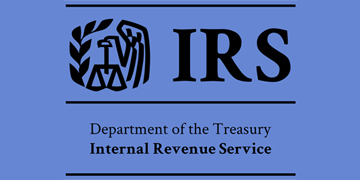According to the Merriam-Webster Dictionary, the word "intelligence" is defined as the ability to learn or understand things or to deal with new or difficult situations; and the word "knowledge" is defined as awareness of something and the information, understanding, or skill that you get from experience or education.
Individual Retirement Arrangements (IRAs)For retirement plan investors, IRS site offers a great resource to understand basic rules and obtain education information. it is always a good time to learn how to investing and make a plan. What follows are a list of practical steps that can help investors get all fiscal acts together.
1. Assess Pull out your banking and brokerage account statements and gather them in one place. After learning where you are, figure out where you want to be in long-term and short-term. Your risk tolerance is a very personal matter. Others may be much more conservative or aggressive than you are. But that doesn't mean their investing strategy is right for you! 2. Invest for the Long-term Before you invest, make sure you have enough money to short-term needs. The earlier you get a start on your savings goals, the less you'll have to put away monthly to reach them. Markets go up and markets go down in the short-term. That's why it is best to think long-term when considering stock market investments. 3. Diversify Over the long-term, the best way to reduce risk is to diversify your investments. Investors who hope to gain fantastic returns by investing in a single stock or one sector have also assumed the higher risks. While diversifying your investments won't bring you sky-high returns, it also means that you won't lose everything when bubbles bust. 4. Know Yourself Watching financial news to learn stock tips is not good investment research! Most Americans should begin investing not with individual stock picks, but with a few broad-based, low-cost index funds or ETFs in various asset types. As you find more time and gain confidence, you'll know whether you've got the desire or interest to select individual stocks. 5. Do Your Homework Check out any investment and investment professional with whom you do business. Lack of reliable information about your investments and advisors can open the door to fraud. Make sure you read and understand all the disclosures you're given. It's up to you to educate yourself to make sure that all of your investments match your goals and tolerance for risk. 6. Protect Yourself Always remember that people who sell investment products make money by doing so. Which doesn't mean that they'll give you bad advice, but it does mean that you've got to take responsibility for evaluating any recommendations you get. Remember that any investment promising high returns necessarily carries a high risk that you'll lose your money. |
SEC Fiduciary StandardThe Fiduciary Ruling was one of the most hotly debated topics in finance, with many brokers and investment firms doing all they could to halt it being enacted. The Fiduciary Ruling was brought into effect to protect the interests of clients versus the financial interests of their brokers and advisors. This led to lower commissions for brokers, less income from "churning" portfolios, and increased compliance costs.
The centerpiece of the SEC’s proposed fiduciary standard is Regulation Best Interest, which requires brokers serving all accounts to act in clients’ best interests. That’s more stringent than the current suitability standard but falls short of a fiduciary duty. The idea of the new rules is that the regulation will stop advisors from putting their own interests in earning high commissions and fees over clients' interests in obtaining the best investments at the lowest prices. Under this regulatory structure, fiduciary status and responsibilities are central to protecting the public interest in the integrity of retirement and other important benefits. |
365 Principles of InvestingWhy smart investors are still making foolish mistakes? The simple answer is that there is always something you do not know. We are all humans, sometimes a mistake is easily caused by our emotions.
Each one-line summary of important investing principles presented here is backed by comprehensive investor behavioral case studies and serves as a reminder for us to avoid making the same mistake again. Key words are thoughtfully selected to cover most investment topics with starting letters forming a relevant word for easy memorizing. With contributions from thousands of investors, the 365 Principles of Investing are derived from investor behavior research and interviews conducted by Institute for Systematic Investment Research (ISIR) which was established in 1997. |
History of Major Theories on InvestingInvestmentTheory.org summarizes some of the most important financial theories. The intended audiences are those investors who are motivated to learn and challenge existing financial theories.
In stock market, each investor's behavior contributes to the overall market's movements and its direction. One person's trade action has little impact, but millions of trade actions combined create the bull and the bear market cycles. The core value of investing as a science is how to quantify the market and investor behaviors in a meaningful, simple, and scientific proven way. Financial industry's fraudulent behaviors are often masked by those academic theories with non-realistic and over simplified mathematical assumptions. By reviewing the history of investment theories, investors will be empowered to avoid costly mistakes and not be fooled again by Wall Street's profit-driven and abusive practices. |



